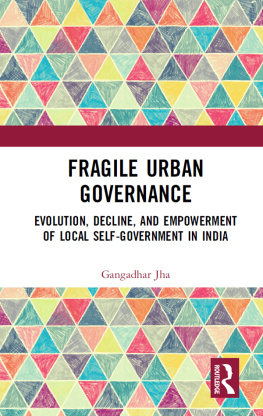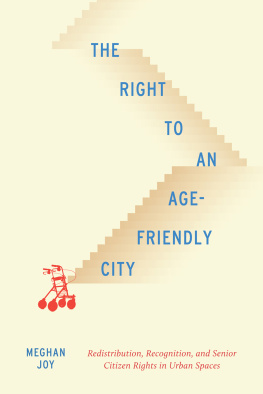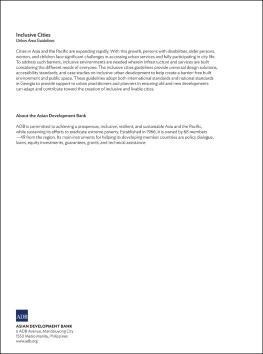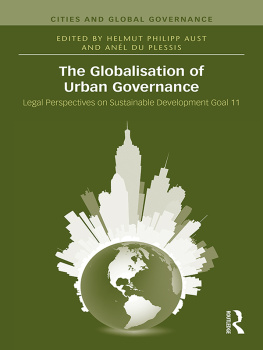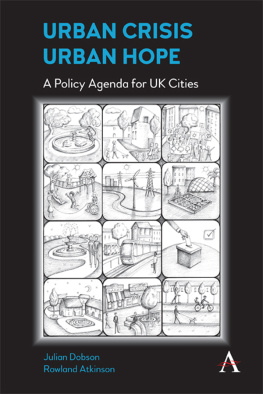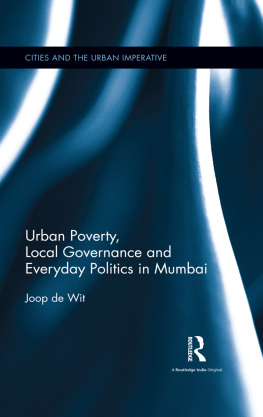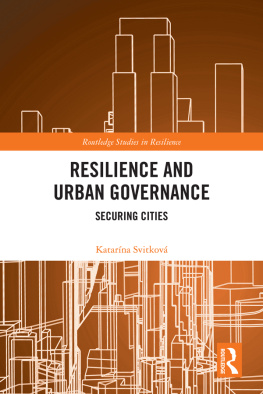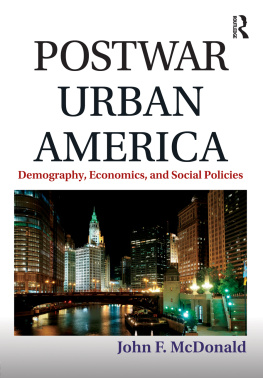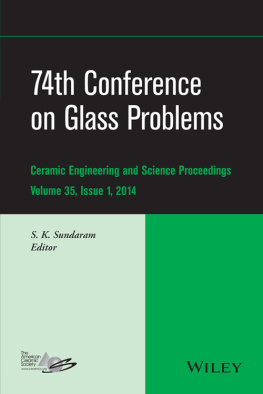FRAGILE URBAN GOVERNANCE
Urbanization is giving rise to a vibrant and volatile urban India as the engine which drives the economic activities that contribute to national economic growth. Even though this imposes unprecedented onus on urban local self-government (ULSG) for providing efficient, effective, inclusive and responsive urban services, they have been struggling to do so. Most ULSGs, especially in Indias secondary cities, are too fragile to perform the mandated functions for enhancing the quality of life and making cities and towns livable.
This volume traces the evolution of ULSGs, their decline after Independence, and steps taken to strengthen them especially through the big-bang decentralization initiative of 1992 for their empowerment, by enacting the 74th Constitution Amendment Act (74th CAA). Analysing facets of the decentralization initiative, views of two review Commissions, policy responses to it and processes for implementation of constitutional provisions, the volume alludes to conspicuous gaps at three levels such as (i) gaps and deficiencies in the 74th CAA itself, (ii) gaps in the post-74th CAA Municipal Acts that were required to conform to the constitutional provisions, and (iii) gaps due to half-hearted implementation of even the mandatory constitutional provisions.
Empowerment and strengthening of ULSGs being in the nature of an imperative, the volume explores plausible options within the constitutional autonomy of states and also specifies experiential based rational framework and a strategy for strengthening ULSGs that must look beyond the existing predilection for mere training.
Gangadhar Jha has been a member of the faculty of the Centre for Urban Studies of the Indian Institute of Public Administration, Professor at the National Institute of Urban Affairs (NIUA) and Principal Consultant and Director at IPE Global. He has been Economic Advisor to the first Delhi Finance Commission, Government of the National Territory of Delhi. He has also worked as Coordinator of the Indo-USAID collaborative FIRE-D Project at NIUA from 1996 to 2002.
Dr. Jha has written extensively on urban governance, municipal finance, institutional strengthening, capacity development and training. He has worked on these issues in Sri Lanka, Iraq, Bhutan, Indonesia, and Nepal besides India, on projects supported by multilateral and bilateral funding agencies.
Fragile Urban Governance
Evolution, Decline, and Empowerment
of Local Self-Government in India
GANGADHAR JHA
First published 2018
by Routledge
2 Park Square, Milton Park, Abingdon, Oxon OX14 4RN
and by Routledge
711 Third Avenue, New York, NY 10017
Routledge is an imprint of the Taylor & Francis Group, an informa business
2018 Gangadhar Jha and Manohar Publishers & Distributors
The right of Gangadhar Jha to be identified as author of this work has been asserted by him in accordance with sections 77 and 78 of the Copyright, Designs and Patents Act 1988.
All rights reserved. No part of this book may be reprinted or reproduced or utilised in any form or by any electronic, mechanical, or other means, now known or hereafter invented, including photocopying and recording, or in any information storage or retrieval system, without permission in writing from the publishers.
Trademark notice: Product or corporate names may be trademarks or registered trademarks, and are used only for identification and explanation without intent to infringe.
Print edition not for sale in South Asia (India, Sri Lanka, Nepal, Bangladesh, Afghanistan, Pakistan or Bhutan)
British Library Cataloguing in Publication Data
A catalogue record for this book is available from the British Library
Library of Congress Cataloging in Publication Data
A catalog record for this book has been requested
ISBN: 978-1-138-34345-0 (hbk)
ISBN: 978-0-4294-3912-4 (ebk)
Typeset in AGaramond 11/13
by Kohli Print, Delhi 110 051
Contents
Urban local self-government (ULSG) constitutes the grassroot level of government that, unlike the higher levels of government, has close interface with the local communities. It is a level of government at the local level in urban areas that is, in true sense of the term, a government by the communities, of the communities and for the communities. This specific feature of local government, therefore, makes it highly communitarian. Because of its close proximity with the citizenry, it is said to be under intense public gaze of the local communities that is supposed to ensure local government accountability. It also provides a forum to the local communities to deliberate on problems confronting them and devise appropriate solutions keeping in view local situation, preferences and priorities. In recent years, the role of urban local self-government has acquired larger perspective. It is called upon to make cities and towns livable, enhance the quality of life of the urban population and by providing urban civic services and urban infrastructure efficiently, it enables the cities in attracting investment that fosters economic growth. Moreover, it serves as a nursery for imparting political education to the local populace in practice of democracy that enables the local political leaders graduate to higher levels of governments.
Development of local government in India has a long and somewhat chequered history. However, after Independence, the urban local governments declined. The decline was brought about because of a number of reasons, the most important being higher priority given, after Independence, to other critically important sectors as compared to urban governance and management of urban service delivery. In such a scheme of priorities as also a subdued level of urbanization in the years following Independence, ways and means for strengthening urban development sector in general and urban local self-government in particular, took a back seat. Making local governance part of the List II (the State List) in the Seventh Schedule of the Indian Constitution over which the state governments have unfettered authority to legislate and take initiative for their strengthening and empowerment further contributed to its decline. Local self-governmentsboth urban and ruralbecame creatures of state governments. Even though it became part of the State List, the state governments became quite indifferent to the need for empowerment and strengthening its organizational capabilities. This made the urban local self-governments institutionally weak and fiscally fragile. There was also encroachment on traditional local functions by creating specific purpose authorities. Encroachment extended even to the sources of revenue that led to weak fiscal capability. Weak governance and unsatisfactory service delivery led to alienation of local citizenry that has a direct stake in effective functioning of local government institutions. Urban local self-governments became subject to myriad types of control by the state governments that more often resulted in dissolution of elected Councils and supersession without holding fresh elections for their reconstitution for a number of years. In certain instances, even for a number of decades. As a result, there was hardly any element of self-government; after supersession, they, by and large, acted like any apolitical state government department under bureaucratic control.

